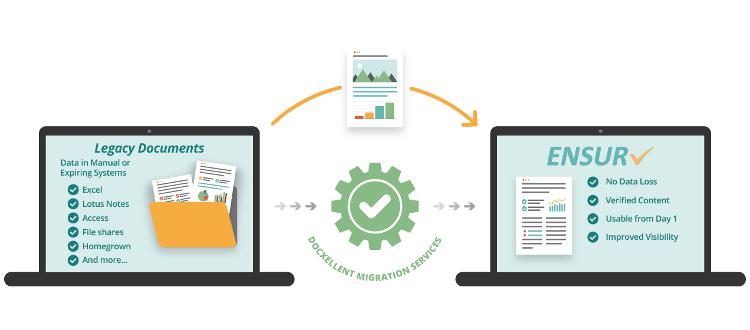.png?width=810&name=How%20to%20Leverage%20Artificial%20Intelligence%20in%20the%20Pharmaceutical%20Supply%20Chain%20(2).png)
Artificial Intelligence, or AI as it is more commonly referred to, is being employed by companies all over the globe. But what exactly is AI and how can you best leverage this technology to benefit your pharmaceutical supply chain? In this article, we will explain “AI”, review the FDA’s opinion of this technology, and explore exactly how your pharmaceutical company can get ahead of the curve when it comes to adopting it.
What is Artificial Intelligence (AI)?
Despite the fact that the use of AI is relatively widespread, the majority of people do not understand what it is or what this technology can do. Surveys show that even most business spearheads lack a true sense of AI, and that many people confuse it with hyper-intelligent robots shown in movies or on TV.
In reality, AI is a branch of computer science focused on building intelligent machines capable of performing tasks that would normally require human intellect. Basically, AI makes it possible for machines to learn from experience, adjust to new inputs and perform human-like tasks. Most AI examples that you hear about today rely heavily on language processing and deep learning. Using these technologies, computers can be trained to accomplish specific tasks by processing large amounts of data and adjusting to any patterns they pick up on.
The FDA Embraces AI and Big Data
The pharmaceutical sector is becoming the newest industry looking to AI to help companies digitize their global supply chains. Examples of artificial intelligence’s value to healthcare is already coming to life in the form of new drugs, new cures, and new ways to diagnose conditions.
In the past, pharma companies have been slow to adapt new technologies. This is because the FDA oversees everything within the pharmaceutical industry to ensure they remain compliant. However, the FDA has recently gone on record discussing AI’s potential to learn and improve performance. The administration has already announced that updated regulations are expected soon to help streamline the implementation of this technology. This means that the FDA not only allows AI adoption for compliant companies, they encourage it. Receiving approval from the FDA is the first step in utilizing AI technology in your supply chain.
Gain a Competitive Edge
Knowing AI is FDA approved, the next step in leveraging this technology is to ensure your company is ahead of the curve. This means you need to know what AI can do for your business, and which type is best for you.
There are two types of AI you will need to choose between: Augmentation and Automation. Augmentation is a type of artificial intelligence that focuses entirely on AI's assistive role, emphasizing the fact that technology is designed to enhance human intelligence rather than replace it. Augment, which means "to improve," reinforces the role human intelligence plays when using machine learning to discover relationships and solve problems. In comparison, Automation is when AI technology has no human intervention and works completely alone on a task.
Whichever you choose, there is no shortage of potential AI solutions in the pharmaceutical market. In the supply chain specifically, there has been a growing number of AI technologies offering answers to many of the current problems faced by the pharma industry. For example, recently developed programs are using machine learning to control and reduce pharmaceutical costs. AI can even pick up that a large number of people in a city are documenting flu symptoms on social media and use this analysis to predict a looming outbreak, giving local authorities and hospitals time to react and prepare.
Once you decide what types of AI your company can benefit from, you need to assemble a team of people that can handle managing and updating these systems. Implementing or supporting an AI/machine learning strategy requires skills that the normal IT staff typically lack. This means that you need to consider training your IT team or adding an AI skills requirement for your next new hires. Luckily, with AI becoming a more readily used resource, many people entering the workforce are experienced in at least some form of this technology.
Overcoming the Challenges to AI Adoption
The potential for AI to improve the efficiency of the pharma supply chain and provide the next generation of medicines is huge. However, the outdated IT groundwork and skillsets within the pharmaceutical industry may potentially cause issues with the speed this technology can be adopted. In order to overcome these barriers, companies need to make it a point to put aside money and resources specifically for updating the infrastructure of pharma IT departments, improving digital skills training and onboarding specialist to make sure AI solutions are being leveraged to the max.
There is no doubt that AI is the future of operating more efficient supply chain systems, but the industry is at a crossroads. And it is up to those in the pharma industry to decide which direction to take. For too long, many in the pharmaceutical industry have relied on supply chain networks which are neither flexible nor cost-effective. A complete overhaul of pharma supply chains is long overdue and if left in their current state, there is a risk of slowing the delivery of innovative new products.
AI is at a turning point for companies around the world. In the next decade, this technology is expected to contribute a massive amount of money to the global economy. According to Forbes, AI is currently valued at $902.1 million in the life sciences market alone, and is expected to grow at a rate of 21.1% through 2024. As part of this growth, it is pretty clear that AI will make significant contributions to improving the efficiency of the pharmaceutical supply chain.
If you are looking to make the jump to AI, digitizing your document control process is an important first step. A document control software will allow you to streamline your quality processes in one central platform where you can automate inefficient workflows, gain visibility across your product lines, and ensure you’re maintaining compliance. This will provide the necessary foundation as you move towards a more automated supply chain.
Contact us for more information about how our ENSUR Document Management Software can improve your company’s efficiency and help you take the first step toward automation.




























